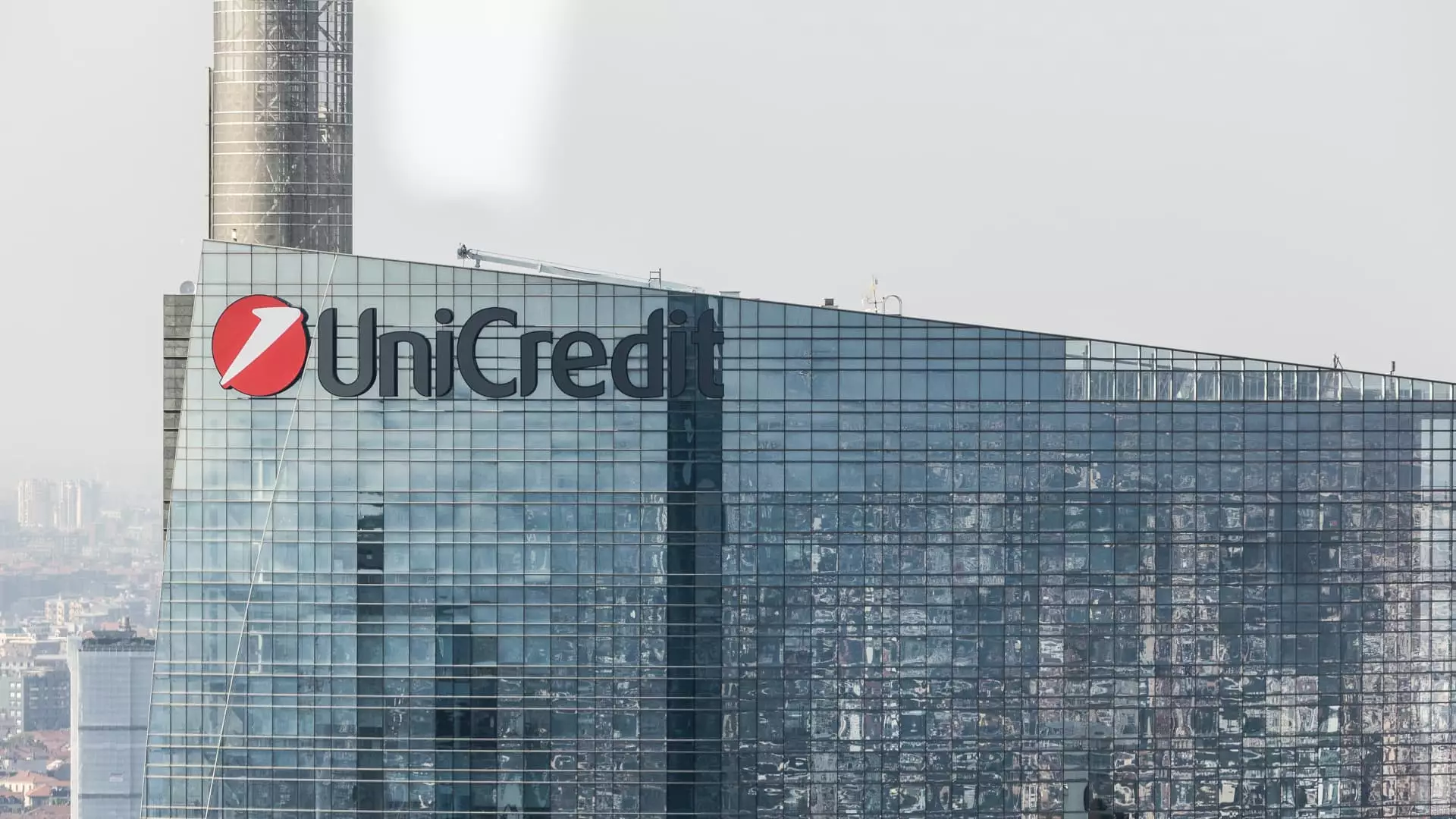On Wednesday, UniCredit, Italy’s second-largest bank, announced a significant increase in its stake in Commerzbank, elevating its potential ownership from 21% to an ambitious 28%. This upward adjustment is achieved through a combination of direct holdings and derivative instruments, indicating a strategic maneuver that may set the stage for deeper engagement in the German banking landscape. Currently, UniCredit possesses a 9.5% direct stake coupled with approximately 18.5% acquired through derivatives, reflecting a strong belief in the untapped value within Commerzbank.
This enhanced stake prompts discussions about whether UniCredit will pursue a full acquisition of Commerzbank. The Italian lender’s request to the European Central Bank to acquire up to 29.9% indicates a serious intent to solidify its positioning. In parallel, UniCredit is actively pursuing a takeover of Banco BPM in Italy, demonstrating its ambition to strengthen its competitive edge in a banking sector that is both rapidly evolving and intensely competitive.
UniCredit’s official statement emphasizes that this stake increase aligns with its vision of extracting substantial value from Commerzbank, reinforcing the belief that the German financial institution is pivotal to the economic development in Germany. The assertion that this move is currently “solely an investment” underscores a cautious approach, signaling that any thoughts of a merger or deeper integration are yet in the preliminary stages.
The timing of this announcement coincides with heightened scrutiny and volatility in the German political landscape, following Chancellor Olaf Scholz’s recent challenges, including a no-confidence vote. The complex dynamics in Germany could significantly influence how readily both Commerzbank and the government are to entertain UniCredit’s overtures.
Despite UniCredit’s strategic positioning, the bank must navigate regulatory hurdles and potential resistance from the German government, which currently maintains a 12% stake in Commerzbank. Historically, the German government has been sensitive to foreign ownership in strategic sectors like banking, especially following the financial crisis bailout in 2008. Commerzbank’s upcoming strategic update, scheduled for February, will be crucial in delineating the bank’s direction and gauging the appetite for a takeover.
Market reactions have been cautiously optimistic, as evidenced by the rise in both UniCredit and Commerzbank shares following the announcement. The potential for synergies in capital markets, payments, and trade finance through a merger could invigorate both entities and bolster their positioning against competitors.
As UniCredit continues to expand its foothold in Germany through its stake in Commerzbank while concurrently pursuing Banco BPM, the path ahead is fraught with both opportunities and challenges. The coming weeks will be paramount in shaping not only the future of UniCredit but also the broader landscape of European banking. Stakeholders will be keenly observing how UniCredit balances its ambitions with the regulatory frameworks and market conditions that govern such significant corporate maneuvers. In the end, it remains to be seen whether this calculated risk will yield substantial dividends for UniCredit or if it will open doors to unforeseen complications.

